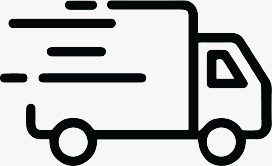New Year, New (Sustainable) Me
A BEGINNER'S GUIDE TO LIVING YOUR BEST, SUSTAINABLE LIFE
Among the many lessons that 2020 has taught us, the urgency to tackle climate change has proven time and time again to be of the utmost importance in sustaining our futures. You’re probably familiar with the parallels that have been drawn between the coronavirus and the climate crisis. And if you’re not, let me spell it out for you. The virus works by entering the body and infecting healthy cells, especially the ones in your lungs. It attempts to hijack the body by multiplying its numbers and eventually makes its way in disrupting important bodily functions. Analogously, our environment has fallen ill. We have collectively infected it with anthropogenic habits like pollution, burning fossil fuels, deforestation, and overconsumption with no end in sight. The race to solve the climate crisis has never been more imperative than it is now. By working towards the alleviation of climate change, we can also directly address issues where inequality and racism are concerned, strengthen the economy, and even encourage global health. So as we enter the new year, we strongly recommend you reassess your new year’s resolutions to address how you can make a difference (big or small) to help, not hurt, the environment around you. Whether you’re thinking about making the switch to a more eco-friendly lifestyle or just starting out on your sustainability journey, we’re here to offer you the ultimate starter guide to living your best, sustainable life.

Photo by Burst
- Avoid buying new at all costs. If you’re the kind of person who consistently purchases new items to replace the old ones, you may want to reconsider your buying habits. The production of new items contributes to the generation of climate-changing greenhouse gas emissions. The Earth Institute at Columbia University even found that the average product results in 6.3 times its weight in carbon emissions. With that being said, it’s not enough to just consume sustainable products, but to reduce consumption altogether. Consider buying second-hand or even thrifting to avoid contributing to the production of new items being produced. Stay tuned for the launch of “Hyer Up”, a resale platform where you can buy and sell second-hand Hyer Goods products, coming to you in the new year on the Hyer Goods site!
- Change your mindset. Transitioning into a sustainable lifestyle is no easy feat, but doing it successfully is all in a matter of changing your mindset from the start. Think about your actions before you take them and consider where everything you buy or use will end up once you finish with it. If it’s going to end up sitting in a landfill for months or even years, consider buying or using a more sustainable alternative like items made from recycled or upcycled goods, items that can be reused/resold/recycled, and items that are biodegradable (made from natural materials).
- Consume more consciously. This goes without saying, but as consumers, it’s important to be consciously aware of how our purchasing decisions will affect society at large. So whether it’s through shopping locally or contributing to your local flea market, educating yourself on conscious consumerism will have a much greater impact on the world than you think.
- Get creative with your waste. Waste doesn’t have to be only restricted to landfills. There are so many creative ways you can turn your waste from trash to treasure in just a matter of minutes. From plastic bottle watering cans to t-shirt tote bags, there are so many creative ideas for you to uncover that’ll leave you feeling less guilty about where your waste ends up.
- Go paperless. As technologically driven as our world has become, it has never been easier to go paperless. Not only is going paperless better for the environment, but it’s also an inexpensive and efficient way to manage your information.
- Utilize sustainable technology options. Nowadays, anyone can take full advantage of everything technology has to offer. Even something as simple as your search engine, instead of using google, consider switching to a sustainable search engine like Ecosia. Ecosia is a free browser extension that uses the profits made from searches to plant trees where they are most needed. Something as simple as browsing the internet can offer so much to the environment and the world around us.
- Consider sustainable commuting. The average passenger vehicle emits around 4.6 metric tons of carbon dioxide per year. If you can’t avoid driving your car, then consider carpooling or even investing in an electric car. Otherwise, plan ahead and use other alternative methods of transportation such as bicycling, walking, etc.






Leave a comment